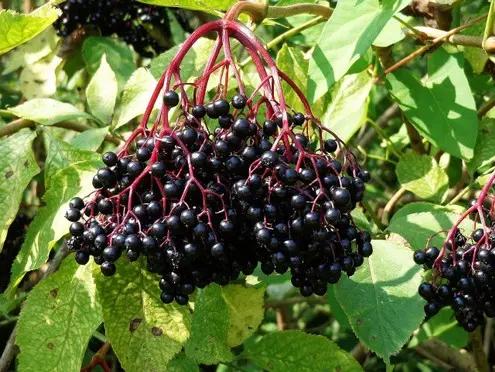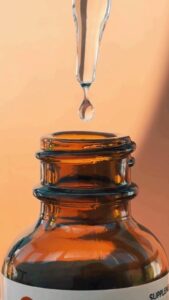Elderberries
The common link between all beliefs and folk stories about the elderberry is its protective role. The elderberry tree was sacred throughout northern and western Europe, and all parts of it were considered a blessing and a gift from mother earth that lived within it. Songs dedicated to this plant were sung – in England it was Elderly mother, in Denmark Hyldemoer, in Germany Frau holle. This plant's ability to sprout from damaged branches and release roots from seedlings symbolized regeneration.
For the Celts, elderberry was a symbol of birth and death. According to the Celtic horoscope, people born in the sign of elderberry (from November 25 to December 23) tend to research, are competent, like to be free, and are very lucky in life. Even Shakespeare admired the healing properties of elderberry in the comedy “The Merry Wives of Windsor” in the words: “What says my Aesculapius, my Galen, my elderberry heart?”
What medicinal properties does black elderberry have?
It is mentioned already in the times of Hippocrates, Pliny the Elder, and Galen. In the 1653 book Complete Herbal, Nicholas Culpeper rated this plant as more useful than other herbs. It was raised high again by the 19th-century German Catholic priest Sebastian Kneipp, who is credited with reviving naturopathic medicine in Europe. Elderberry was most often used for acute respiratory infections. It was also used as a tonic for the body, especially in children, which can be explained by the relatively high level of folic acid and minerals as well as red pigments.
How does elderberry work as an antiviral against colds and flu?
In the 1990s, it was discovered that active substances (probably anthocyanins) from elderberries prevent the transmission and multiplication of influenza viruses in vitro. Substances contained in elderberries stimulate the part of the immune system responsible for the first line of defense against dangerous microorganisms. Therefore, elderberries are ideal for prevention and early stages of infection.
Mechanisms of antiviral action
- Elderberry can prevent the virus from attaching by damaging the virus's outer coating
- It may increase the production of inflammatory cytokines in healthy people
- Lectins (agglutinin) present in elderberries can prevent viral proteins from binding to respiratory receptors (sialic acid), thereby preventing infection. Sialic acid molecules on the cell surface act as chemical navigation signals for the flu virus. Once the virus finds sialic acid, it can bind to and infect the cell.
Other valuable substances contained in elderberries, such as:
- vitamin C, which strengthens the immune system and our defense mechanisms,
- essential oils that have anti-inflammatory and analgesic effects on the throat,
- glycosides – strengthen the heart
Recommended products with elderberry
Less known health benefits of using black elderberry extracts.
- Cardiovascular health – flavonoids and anthocyanins have anti-inflammatory and antioxidant properties, which significantly protect the heart and blood vessels against aging and degeneration. In this respect, their content is significantly higher than cranberries, blueberries, goji berries and blackberries. Moreover, thanks to the high potassium content, consuming elderberries has a particularly good effect on the regularity of the heartbeat. Potassium is important for muscle contraction, flexibility and water balance.
- Help with herpes – Herpes is mainly caused by the flu, viral infection, weakened immune system or mental stress. Thanks to vitamins A, C and potassium, elderberries can have preventive and healing effects.
- For a healthy metabolism, especially in diabetes
- Preserving and strengthening vision
- In anemia, to strengthen the blood.




